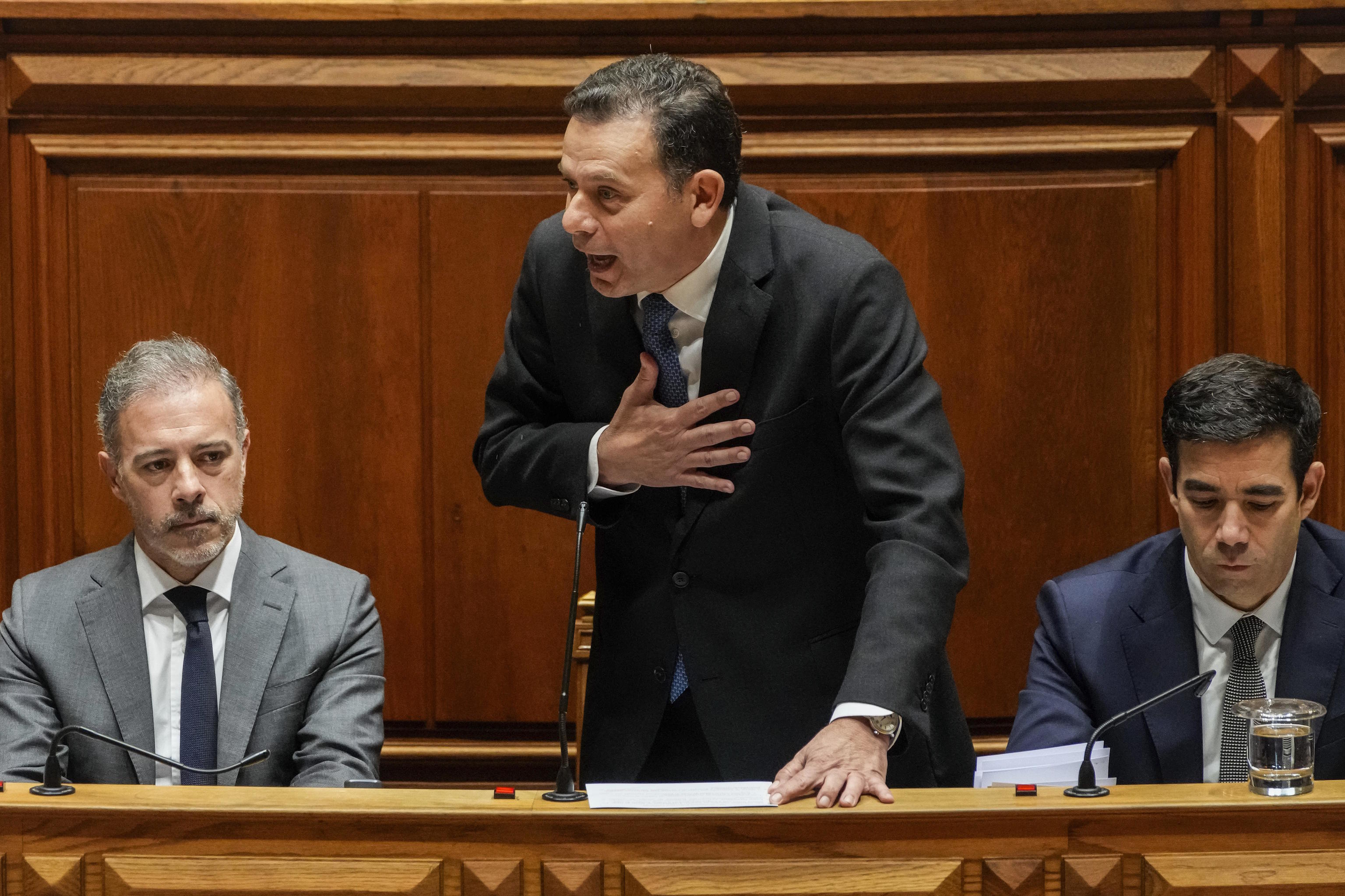Portuguese people are fed up with politics, tired and disillusioned by the absence of a stable government. Polls, experts, and Portuguese analysts agree on this. Since 2022, our neighbors will have to vote three times in legislative elections. The last one was in March 2024, when the polls revealed a technical tie between the center-right Democratic Alliance (AD), with a slight advantage, and the Socialist Party (PS). The final result was a minority government led by Luís Montenegro, who has now called for new elections this Sunday, May 18.
One consequence of this citizen weariness is the rise of the radical right-wing party Chega - a Portuguese partner of Vox - which increased from 7% (12 deputies) to 18% (50) in 2024. This time, polls indicate a similar or higher result.
"Portuguese people are tired of politics; irritated," explains Nuno Magalhães, Director of Political Context at LLYC Portugal, former deputy for CDS-PP, and former Secretary of State for the Interior, to EL MUNDO. "Electoral debates have had lower viewership, and people want a stable and lasting government; that is one of the reasons why the Democratic Alliance [the center-right coalition of PSD and CDS] could rise and win the elections more clearly," he adds.
Polls a year ago showed a technical tie between AD and PS. Recent polls indicate a certain advantage for the conservatives led by the Prime Minister, Luís Montenegro (31-32%), over the PS (25-26%). However, they also point out that there are up to 20% of undecided voters in this last week of the electoral campaign. Their vote could change the outcome, as it did in 2022 when socialist António Costa achieved an unexpected absolute majority.
As Magalhães suggests, the scenario is open, surprises are possible, and it only reveals "one certainty: that the center-right and the far-right will together achieve an absolute majority," as polls give 18% or more to the radicals of Chega. However, in Portugal, as in Germany, all parties have formed a cordon sanitaire against the radical right, preventing them from entering any government formula.
Socialist candidate Pedro Nuno Santos, this Wednesday at a market in Setúbal.Jose Sena GoulaoEfe
The repetition of elections has been a consequence of the political turmoil that erupted after the media revealed several scandals related to the company founded by Montenegro when he was not yet in politics. This company, Spinumviva, still active, has its registered office at the Prime Minister's residence, has no employees, is now managed by his wife and children, and has as its main clients government contractors, especially Sotoverde, a casino and gaming room concessionaire.
After the scandal broke, Montenegro faced two votes of no confidence in February and March - from Chega and the Communist Party. He survived both thanks to the PS's votes against. But when the socialists initiated a parliamentary inquiry to clarify the scandal, the Prime Minister chose to present a vote of confidence that he was going to lose rather than subject himself to the public scrutiny that the parliamentary investigation would entail. By losing the vote of confidence, the country was forced into elections.
Today, despite the headlines about the private company and the Prime Minister's multiple properties, next Sunday he could emerge strengthened precisely due to the general weariness.
"People are tired, saturated," details Octávio Lousada, a journalist, political communication consultant, and author of a biography of former Prime Minister António Costa. "Costa obtained an absolute majority in 2022 because the Portuguese wanted to escape instability," he adds. "And that deep desire could sway the center and undecided voters towards AD, as a more moderate option than the adventure of a left-wing government," Lousada emphasizes.
The problems facing the Portuguese remain the same a year later. Housing prices continue to soar, there are between 20,000 and 30,000 students without teachers in public schools, and many emergency services have had to close in health centers due to a lack of doctors. However, as highlighted by Margarida Davim, a journalist for the weekly Visão and an analyst for CNN and the Portuguese radio TSF, several measures by the conservative government in the past year have been popular, such as pension increases, salary improvements for civil servants - including doctors and teachers - and various tax cuts: on income, corporations, and especially a reduction for young people under 35.
Furthermore, Davim points out that PS candidate Pedro Nuno Santos is seen by many as an impulsive, controversial, and left-leaning leader. "Part of the electorate sees him as a radical and impulsive candidate." Finally, "many Portuguese want to give more time to the government, which has not had much yet."
Nevertheless, the general consensus is that everything remains open two days before the polls open, and all scenarios are on the table in the party headquarters.
